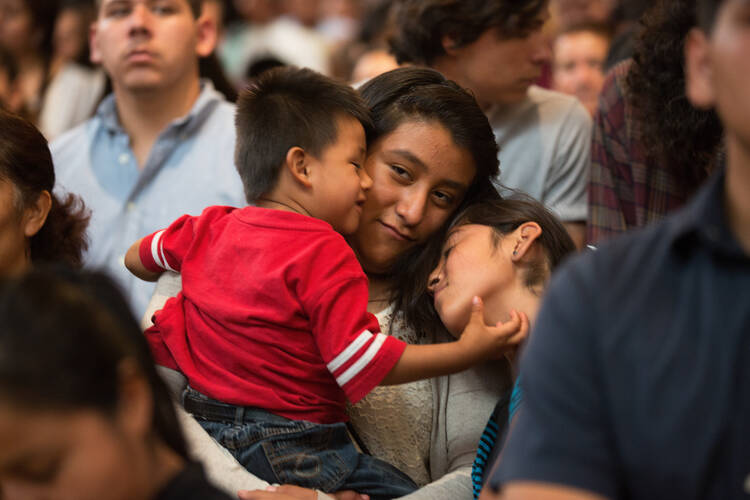In 2012 the Obama administration, frustrated by Congress’s failure to pass the DREAM (Development, Relief, and Education for Alien Minors) Act, launched a policy initiative called DACA (Deferred Action for Childhood Arrivals) that grants young people who came to the United States as children limited authorization to work and live in the country. The policy does not grant minors a statutorily recognized immigration status as the DREAM Act would have done. It does, however, deem recipients “lawfully present,” which makes them eligible to qualify for some government benefits, including state-issued drivers’ licenses and federally issued employment authorization documents. DACA benefits are granted for two-year intervals, but the entire program and/or individual benefits can be rescinded at any time.
The DACA initiative was immediately challenged in federal court by several Immigration, Customs and Enforcement agents who disagreed with their employer’s policy and by the state of Mississippi, but the case was dismissed because neither the agents nor the state could prove they actually were harmed by DACA and, thus, they did not have legal standing to sue. Since 2012, more than 700,000 people have qualified for DACA.
In 2014, the Department of Homeland Security announced a plan to expand DACA to include applicants who had been in the country either too long or not long enough to qualify under the strict guidelines of the initial policy and to extend all DACA work authorizations for three years. A new program, DAPA (Deferred Action for Parents of Americans and Lawful Permanent Residents), which would grant similar work authorization and lawful presence to the parents of U.S. citizens and lawful residents, also was announced.
The state of Texas immediately filed suit to prevent the government from proceeding with the DACA expansion and implementation of the DAPA policy. Unlike Mississippi, Texas was able to prove it would be harmed by the policies because thousands of new DACA and DAPA Texas residents would apply for drivers’ licenses, which the state processes at a financial loss. On the merits of the case, the federal trial court sided with Texas in its interpretation of the federal Administrative Procedure Act (APA) and found the expanded DACA and DAPA policies were improperly implemented because the Department of Homeland Security did not comply with the APA’s public notice and comment requirements. The court then issued a nationwide injunction to prevent the implementation of both policies. U.S. Citizen and Immigration Services was forced to recall approximately 2,000 DACA work authorizations it already had issued. The DAPA program was never implemented.
The Obama administration appealed, but, on Nov. 9, 2015, the U.S. Court of Appeals for the Fifth Circuit denied the appeal. Not only did the appellate court agree the policies are subject to the APA’s notice and comment requirements, it further held the policies are unlawful because they grant benefits beyond those authorized by Congress. The Obama administration has stated it will ask the U.S. Supreme Court to take the case. In the meantime, the injunction remains in effect. Recipients of the original DACA program maintain their status for now, but their fate and those of millions more remains in limbo.








